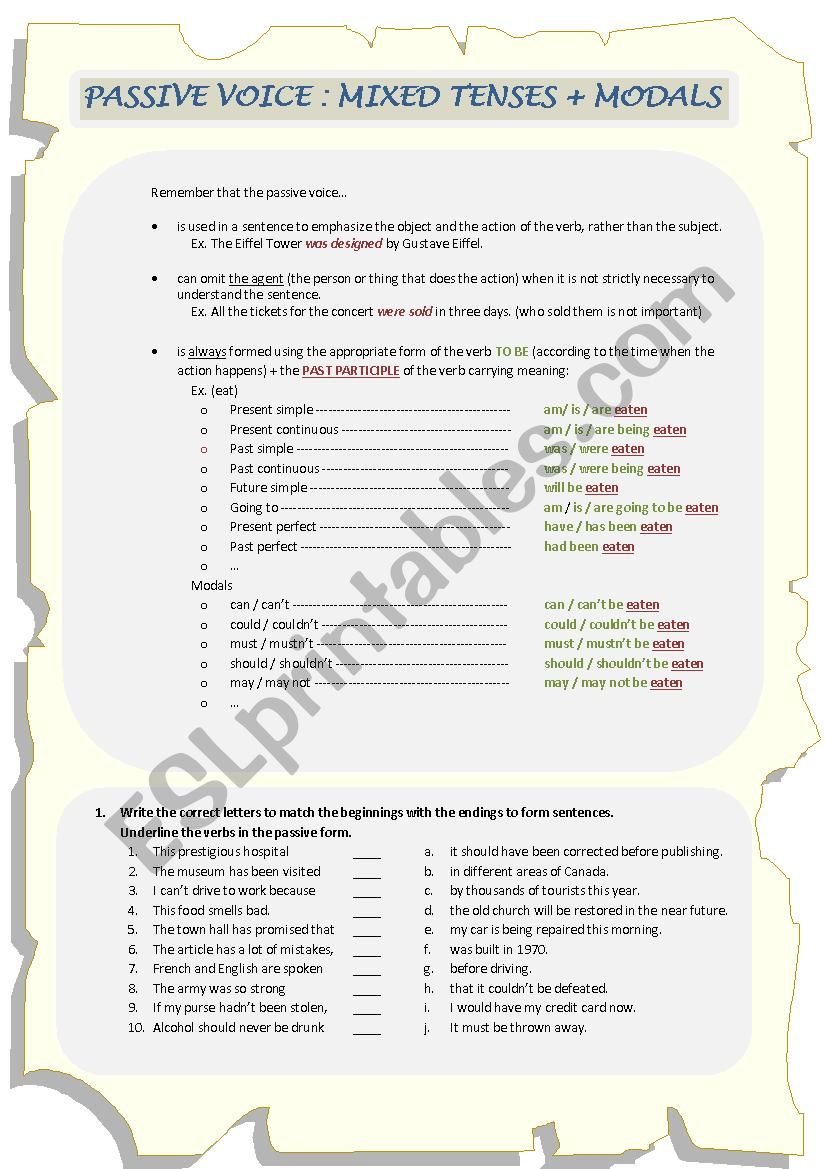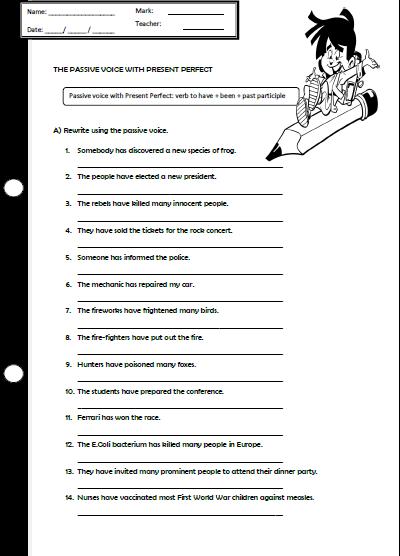

An Active sentence with a modal verb can be changed into a Passive sentence by making the subject of the active sentence the object of the passive sentence AND the object of the active sentence the subject of the passive sentence. The modal verbs use the passive voice the same way that all other tenses in English do. Make sure you complete our *TT exercises to gain confidence in using the passive voice.\( \newcommand\) Students are expected to arrive on time, etc. In such instances, the agent does not matter, it is the action or request that is the focus. To practise think of rules and customs that apply to everyone or a group of people and are passed by somebody in the position of authority, a teacher, government, a public institution. The employees were told to record all their daily task in an electronic calendar.I was asked not to discuss any details of this report.If you want to use one of the meeting rooms, you’re supposed to book it 48 hours in advance.In the UK, you’re allowed to vote at the age of 18.

Guests of the hotel are asked (not to smoke anywhere in the building.Candidates are expected to arrive no less than 15 minutes before the start of the examination.The employees are supposed to sign daily timesheets.These modal verbs expressions are naturally passive and can be used in different tenses as well. In the passive voice ( To be SUPPOSED TO/ EXPECTED TO/ ALLOWED TO / ASKED TO/ TOLD TO, etc.) How to use passive voice with modal verbs? – This assignment has to be handed in by tomorrow. I have to and in this assignment by tomorrow.– Extension might only be given in special circumstances. Teachers might give extension only in special circumstances.Drivers must wear seat belts at all times.Students must complete their assignments on time.– The repairs should be finished by next March. The building contractor should finish the repairs by next March.Users should return the books by next week.– Interpreters can be provided on request. The company can provide interpreters on request.– This paining can be seen in the Louvre. People can see the painting in the Louvre.The structure is: modal or modal phrase + be + the past participle( V3). Words like can, could, may, might, must, should are all modals.īut modals also include something called “phrasal modals” – phrases such as has to, ought to and be supposed to. Modals are helping verbs that express possibility, ability, duty, permission or advisability.


 0 kommentar(er)
0 kommentar(er)
